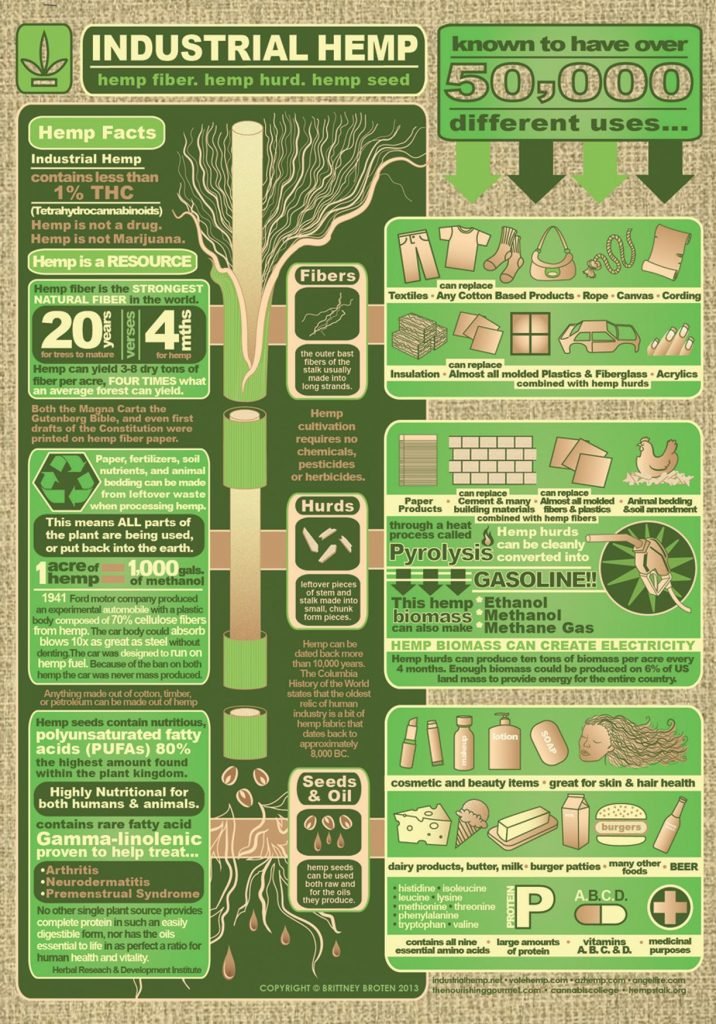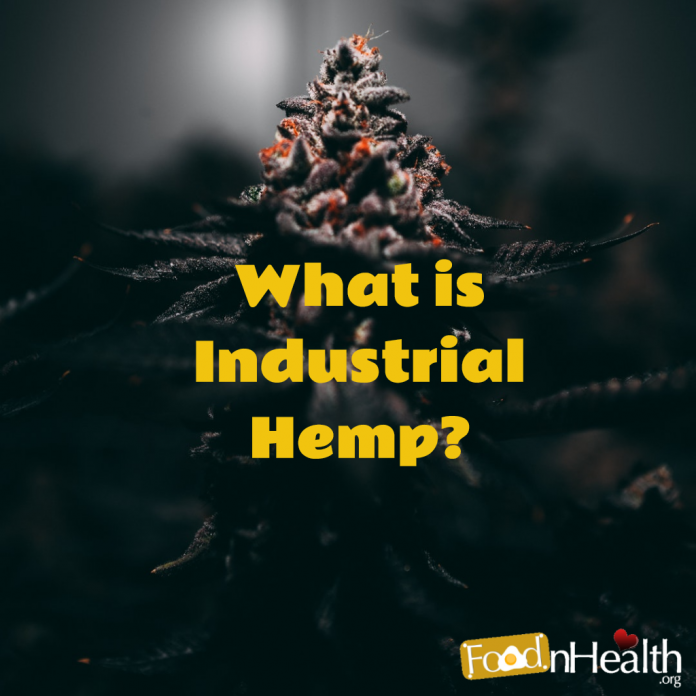There are a lot of strains of the cannabis plant, with each having its own uses and benefits. One of this is the Hemp plant, which is mainly grown for industrial purposes hence the name Industrial Hemp. This sets it aside from other cannabis plants like marijuana that are majorly grown for their recreational or medicinal purposes. There are many uses of industrial hemp and these include:
- Paper
- Construction
- Textiles
- Health food
- Biodegradable plastics
- Fuel
- Biogas
As far as plant growth goes, industrial hemp is one of the fastest. It also requires very little in the way of pesticides, herbicides or other chemical additives. Industrial hemp is becoming one of the major replacers of tree paper round the world as it is economically conservative in more ways than one. So, how is it exactly grown and where does it come from?

How is Industrial Hemp Grown?
There are many areas in the world where hemp can organically grow. The type of hemp grown ultimately depends on its intended industrial use. Some Industrial hemp is chosen for its fiber content while some are chosen for its oil content. There are over 100 strains of industrial help available in the world.
Hemp is a rapidly growing plant that requires little to no chemical intervention. It naturally chokes out weeds around it and has a natural resistance to pests and diseases. It has a maturity of 2-3 months and can be grown alongside legumes to ensure that it gets the right amount of nitrogen nutrients naturally.
It has a long tap root that seeks out water while at the same time binding soil and properly aerating it to reduce the effects of erosion and leaching. It can also survive in arid and semi-arid areas that are prone to long periods of drought.
It has a high cellulose yield and produces long fibers that can be used for a variety of industrial applications like the manufacture of ropes, fabrics, cordage, and twines. It also finds use in the manufacture of paper and fiberglass.
Where does industrial hemp come from?
There are many countries in the world that produce industrial hemp with the major ones being China, Canada, and France. The United States is one of the greatest importers of industrial hemp in the world but still faces the hurdle of its federal government. The Federal Laws fail to clearly distinguish between industrial hemp and marijuana.
Why is It Not Sourced Locally Within the U.S?
Many countries in the world legalized the growth of hemp in the early 1990s allowing their farmers to grow Hemp for industrial use at their own discretion. However, the United States Federal government still remained firm on the fact that cannabis was a schedule 1 narcotic drug. This was clearly laid out in The Controlled Substances Act, 1970. This prohibited the growth of hemp or any other Cannabis based plant by U.S Farmers. Importation was however not restricted as far as industrial hemp was concerned.
This would be the situation till 2014 when the Farm Bill was passed and it allowed for states to pass laws that allowed for pilot industrial hemp programs for research purposes. In this bill, there was a distinction between marijuana and industrial hemp with industrial hemp being considered as any hemp with less than 0.3% THC in its composition. This left the power to the states. They could thus legalize the growth of industrial hemp as they saw fit.
This means that there are very few farmers that are actually allowed to grow Hemp for industrial uses, with less than half the states having greenlit pilot programs since the passing of the bill. Also, with very little experience to go around, the Industrial Hemp Industry in the U.S is still a little touch-and-go. however, with improving state legislation on the issues of cannabis and cannabis products, it will not be long before hemp industries can source their raw product locally, ensuring the country to fully reap its benefits.


























